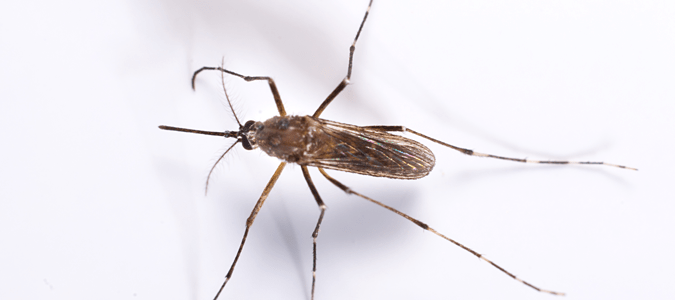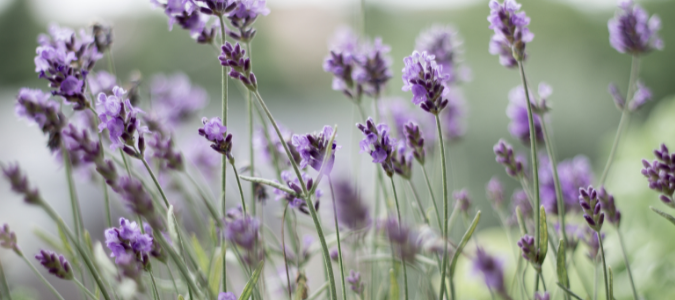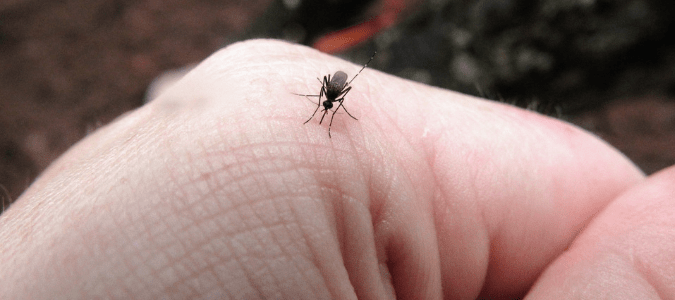Southern House Mosquito: What You Should Know

If you find yourself getting mosquito bites indoors, there’s a decent chance you are dealing with a southern house mosquito. You may even have these pests living and breeding inside your home. But these mosquitoes also live, breed and bite people outside. In fact, you are far more likely to encounter them outdoors than inside your home. Here’s what you need to know about these pests.
Southern house mosquito bites are itchy and annoying. Like many other mosquito bites, they can also be dangerous. These pests can carry and transmit illnesses that make people sick, including West Nile virus and western equine encephalitis. They can also infect dogs and cats with heartworm. This is one good reason why you should take steps to get rid of them if you have a mosquito problem in or around your home.
True to their name, southern house mosquitoes are found throughout the southern United States, including here in Central Texas. They are medium in size and light brown in color, with a white-banded abdomen. They are most active at night. This means that if you get bitten by mosquitoes outdoors at night, they could well be the southern house variety.
It is also possible to have these mosquitoes bite during the daytime and indoors. This is especially true if you have any gaps around your exterior doors or windows with tears in the screens that can let small pests in. Once inside, mosquitoes can stay and even breed if they find water for laying eggs.
Like all mosquito varieties, southern house mosquitoes need water to breed. The females lay their eggs in groupings called rafts on the surface of standing water. The eggs hatch into larvae just a day or two later. The larvae feed on organic matter in the water, like dirt and leaves, until they develop into pupae. The pupae then develop into flying adults that are capable of biting and breeding. The entire process, from egg to adult, takes less than two weeks.
Outdoors, southern house mosquitoes can find water in a variety of places to lay eggs. After it rains or you use your sprinklers, water can collect in planters, birdbaths, children’s toys, buckets and old tires. Really, any container in the yard can turn into a breeding spot for mosquitoes. This is why it is so important to dump out any water that collects in your yard.
Indoors, mosquitoes can find places to breed in potted plants, especially if they are overwatered. They can even breed in places indoors where water drainage is an issue, such as a leaky pipe or faucet, or a clogged AC drain pan.
If you are lying in bed at night and you hear the tiny whine of a nearby mosquito, it may be a southern house mosquito looking for someone to bite. Whether you have mosquitoes indoors or outside, they are a nuisance. They are also potentially dangerous for you, your loved ones and your pets. The best way to get rid of them is to reach out to a pest control professional who can devise a targeted approach to treating your yard.

What Flowers Keep Mosquitoes Away?
Springtime is heaven for gardeners, unless you have a mosquito problem. Right when spring rains and warmer weather return, your yard starts bursting with new growth and color—and mosquitoes also start biting again. Unfortunately, springtime marks the start of mosquito season. If you’re a gardener, you may wonder what flowers keep mosquitoes away. There are several kinds of plants and flowers that many people say are mosquito repellent. Unfortunately, they aren’t enough on their own to keep mosquito populations low.
The reason why these plants aren’t enough to keep mosquitoes away is that the main element that repels pests is the plants’ oils. Growing the following plants in your yard will create a beautiful and colorful garden, but you’ll have to crush their leaves and rub them on your skin to notice any natural mosquito repellent effects. Since the oils wear off quickly, you’ll have to rub them on your skin again every hour or so to protect against mosquito bites. Some oils are strong enough to irritate the skin, so be careful if you choose to do this.
Here are some flowers and plants that may repel mosquitoes:
- Lavender: The soft purple flowers of lavender plants look nice in any garden. Better yet, mosquitoes typically avoid the scent of this plant and its tiny blooms. (So do flies, moths and fleas!) Lavender does well in southern climates. It thrives in full sunlight when planted two to three feet apart, so it has room to grow. This plant also has low to moderate water needs, making it a great choice for hotter regions.
- Marigolds: These flowers provide a bright pop of color, and they also repel mosquitoes along with certain other pests. Marigolds are also great for attracting beneficial insects, like ladybugs. This plant needs full sun and well-draining soil to thrive. It is very heat-tolerant, which makes it a great choice for gardens in hotter areas.
- Chrysanthemums: For another pop of bright color that may help to repel mosquitoes, plant chrysanthemums in your yard. Not only do mosquitoes stay away from these plants, ants, fleas, roaches and ticks also don’t like them. Like marigolds, chrysanthemums do well in full sun and well-draining soil.
- Citronella: Mosquitoes are naturally repelled by plants that give off spicy scents. Citronella has a strong, spicy smell that mosquitoes avoid. The oil from this plant is actually an ingredient used in lots of different mosquito repellent products.
- Basil, mint and rosemary: Just like with citronella, basil, mint and rosemary all have spicy scents that mosquitoes dislike. Better yet, all three of these herbs are great additions to your kitchen garden. Their distinctive flavors can be used in cooking lots of different dishes as well as making a variety of delicious drinks.
For people who love gardening, natural pest control products and spending time outdoors, there is no harm in adding these plants to your garden. It is very important to note, however, that animals can be very sensitive to essential oils, including rosemary and citronella. Dogs and cats can suffer from mosquito bites just like humans, but using these oils on their fur could do more harm than good. Be sure to consult with your veterinarian before using any of these on or near your pet.
The bottom line is, if you have a mosquito problem, planting certain plants or flowers in your yard may help. But the very best way to keep mosquito populations at bay is with a professional pest control plan. A pro will treat your whole yard and make follow-up visits throughout mosquito season to keep these pests away.

Are Male Mosquitoes Bigger?
In many different animal and insect species, the males are bigger than the females. So are male mosquitoes bigger than female mosquitoes? Interestingly, male mosquitoes are actually smaller than females. They are different from their female counterparts in several other ways as well.
Not only are they smaller overall, but male mosquitoes also have different antennae than females. If you could see them up close, you would see that the antennae on a male mosquito are feathery or bushy-looking. Another difference between males and females is in the sounds they make. That annoying, high-pitched mosquito whine that most of us have heard? Female mosquitoes make those. The males do make sounds, but at a level that most people can’t hear.
Possibly the most important difference between male and female mosquitoes is that male mosquitoes don’t transmit illnesses to humans or other animals. This is because the males don’t bite. Only female mosquitoes do—but they don’t bite us for food. Both male and female mosquitoes feed on plant juices and nectars for sustenance. The females bite us because they need certain proteins found in our blood for their eggs to develop.
Regardless of whether the mosquitoes in your yard are male or female, they are still a nuisance to have around. Mosquitoes should be treated by a professional pest control company, starting at the very beginning of mosquito season if possible, to have the best chance of keeping their populations low. You can also take the following steps on your own to help keep these pests at bay:
- Dump out standing water from any containers in your yard after a rain, or after you water your grass. Since mosquitoes can come out during the rain, this will cut down on the places where mosquitoes can lay eggs and breed.
- Mow your grass regularly, and trim bushes and other landscaping. This will cut down on the spots where mosquitoes hang out and hide between active periods.
- Clear away dead leaves and other yard debris where water can collect, and level off any drainage problem areas in your yard. Even the small amounts of water that collect in dead leaves or low spots in the yard can be moist enough for certain types of mosquitoes to breed.
- Keep your trees trimmed to reduce densely shady spots that encourage mosquito breeding.
Taking these steps throughout spring and summer in combination with having your yard professionally treated for mosquitoes will greatly reduce bites and help you enjoy your time outdoors.
Chem-free Can Reduce Mosquito Populations on Your Property
Mosquitoes can make you miserable. Instead of dealing with obnoxious bites, contact Chem-free Pest Control. We offer holistic methods of organic pest control that have baby safety in mind. This way, you can feel comfortable at home again.

